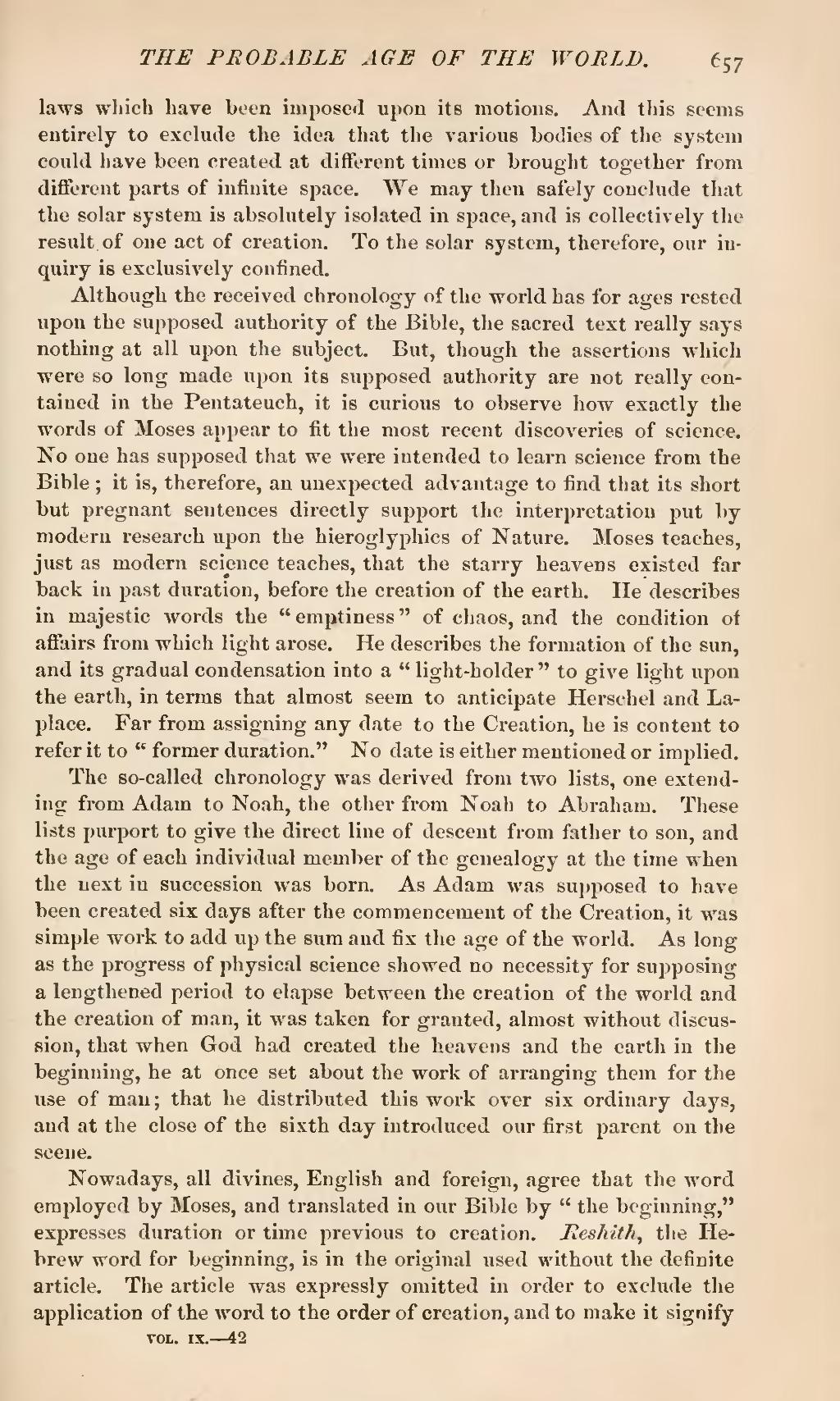laws which have been imposed upon its motions. And this seems entirely to exclude the idea that the various bodies of the system could have been created at different times or brought together from different parts of infinite space. We may then safely conclude that the solar system is absolutely isolated in space, and is collectively the result, of one act of creation. To the solar system, therefore, our inquiry is exclusively confined.
Although the received chronology of the world has for ages rested upon the supposed authority of the Bible, the sacred text really says nothing at all upon the subject. But, though the assertions which were so long made upon its supposed authority are not really contained in the Pentateuch, it is curious to observe how exactly the words of Moses appear to fit the most recent discoveries of science. No one has supposed that we were intended to learn science from the Bible; it is, therefore, an unexpected advantage to find that its short but pregnant sentences directly support the interpretation put by modern research upon the hieroglyphics of Nature. Moses teaches, just as modern science teaches, that the starry heavens existed far back in past duration, before the creation of the earth. He describes in majestic words the "emptiness" of chaos, and the condition of affairs from which light arose. He describes the formation of the sun, and its gradual condensation into a "light-holder" to give light upon the earth, in terms that almost seem to anticipate Herschel and Laplace. Far from assigning any date to the Creation, he is content to refer it to "former duration." No date is either mentioned or implied.
The so-called chronology was derived from two lists, one extending from Adam to Noah, the other from Noah to Abraham. These lists purport to give the direct line of descent from father to son, and the age of each individual member of the genealogy at the time when the next in succession was born. As Adam was supposed to have been created six days after the commencement of the Creation, it was simple work to add up the sum and fix the age of the world. As long as the progress of physical science showed no necessity for supposing a lengthened period to elapse between the creation of the world and the creation of man, it was taken for granted, almost without discussion, that when God had created the heavens and the earth in the beginning, he at once set about the work of arranging them for the use of man; that he distributed this work over six ordinary days, and at the close of the sixth day introduced our first parent on the scene.
Nowadays, all divines, English and foreign, agree that the word employed by Moses, and translated in our Bible by "the beginning," expresses duration or time previous to creation. Reshith, the Hebrew word for beginning, is in the original used without the definite article. The article was expressly omitted in order to exclude the application of the word to the order of creation, and to make it signify
